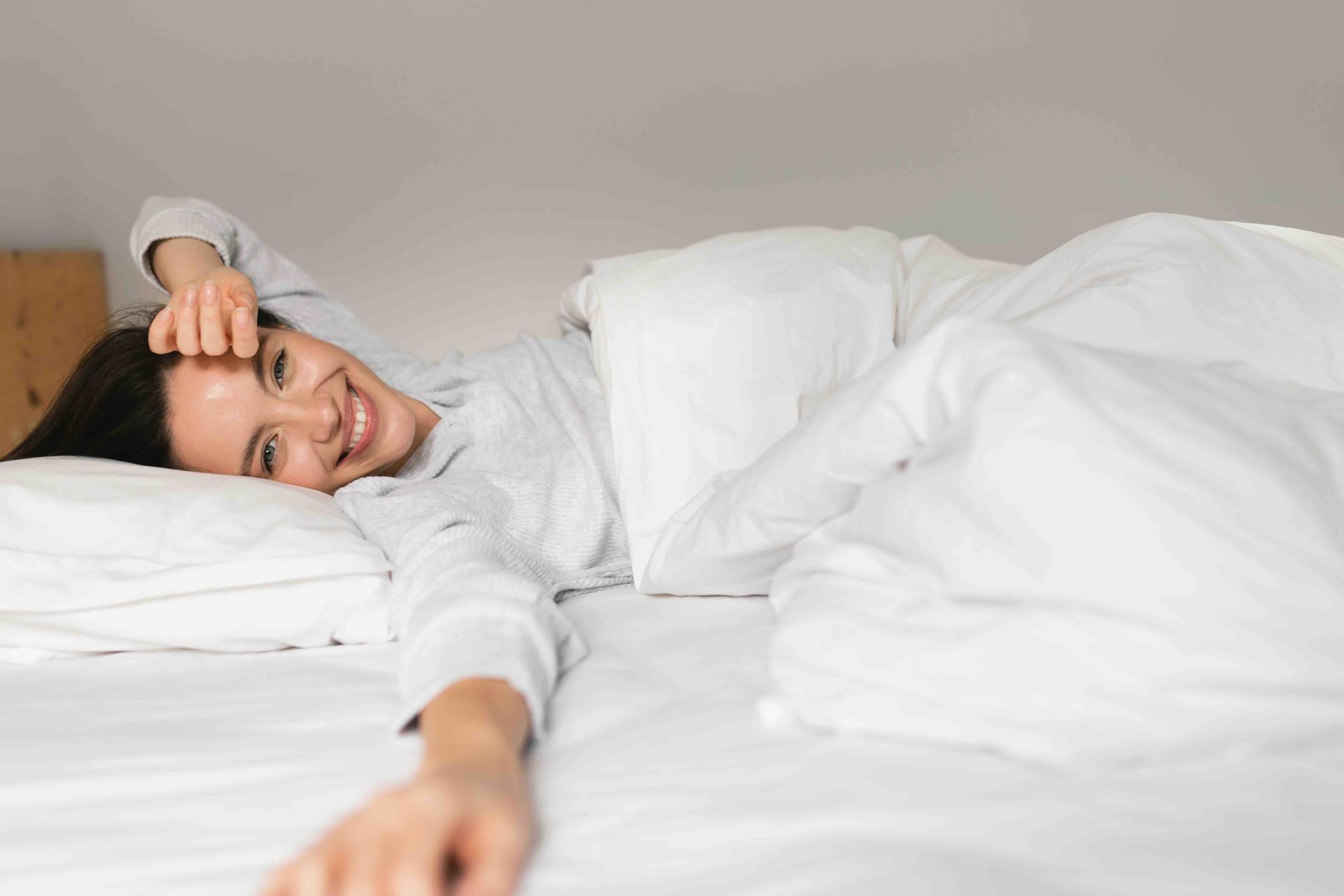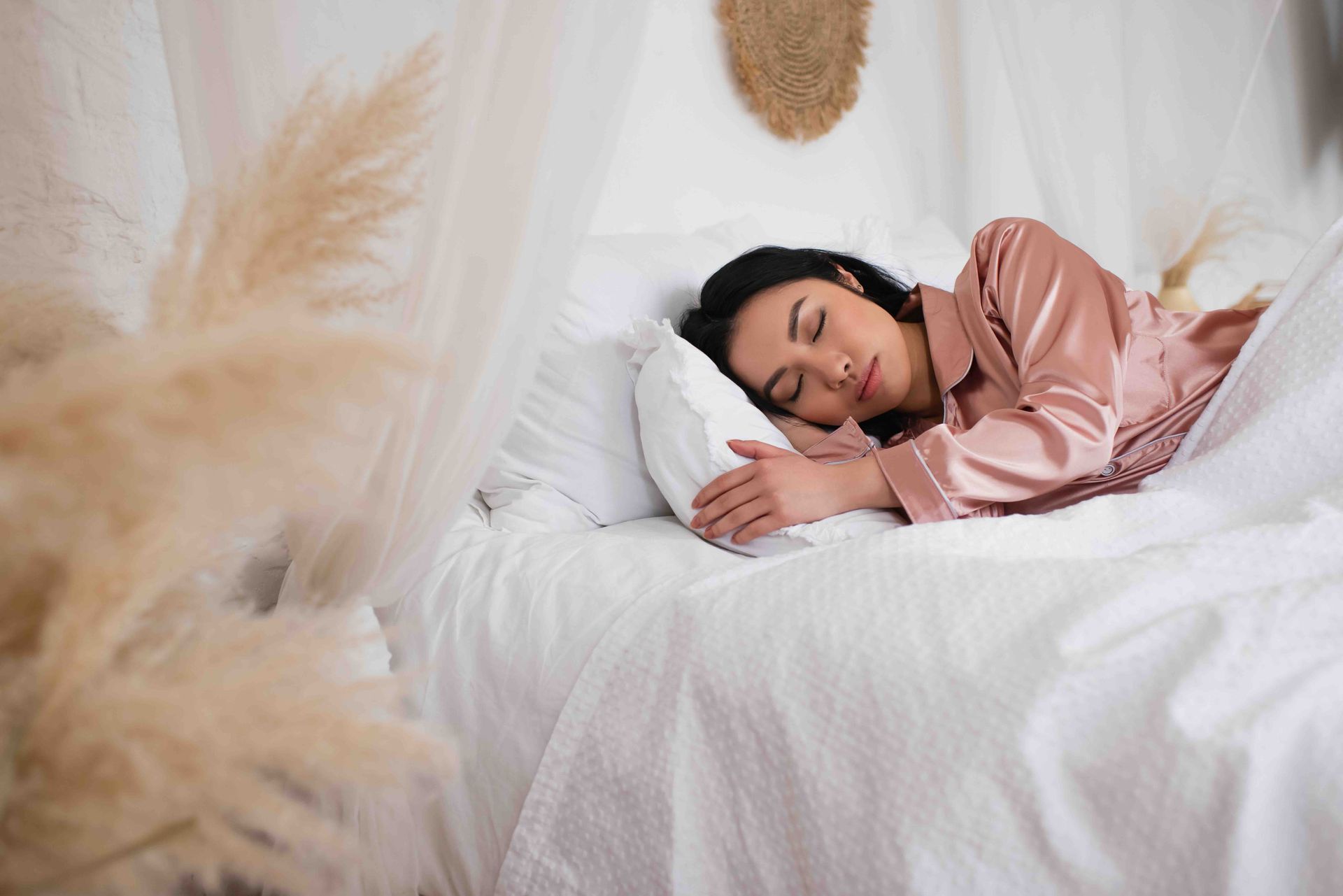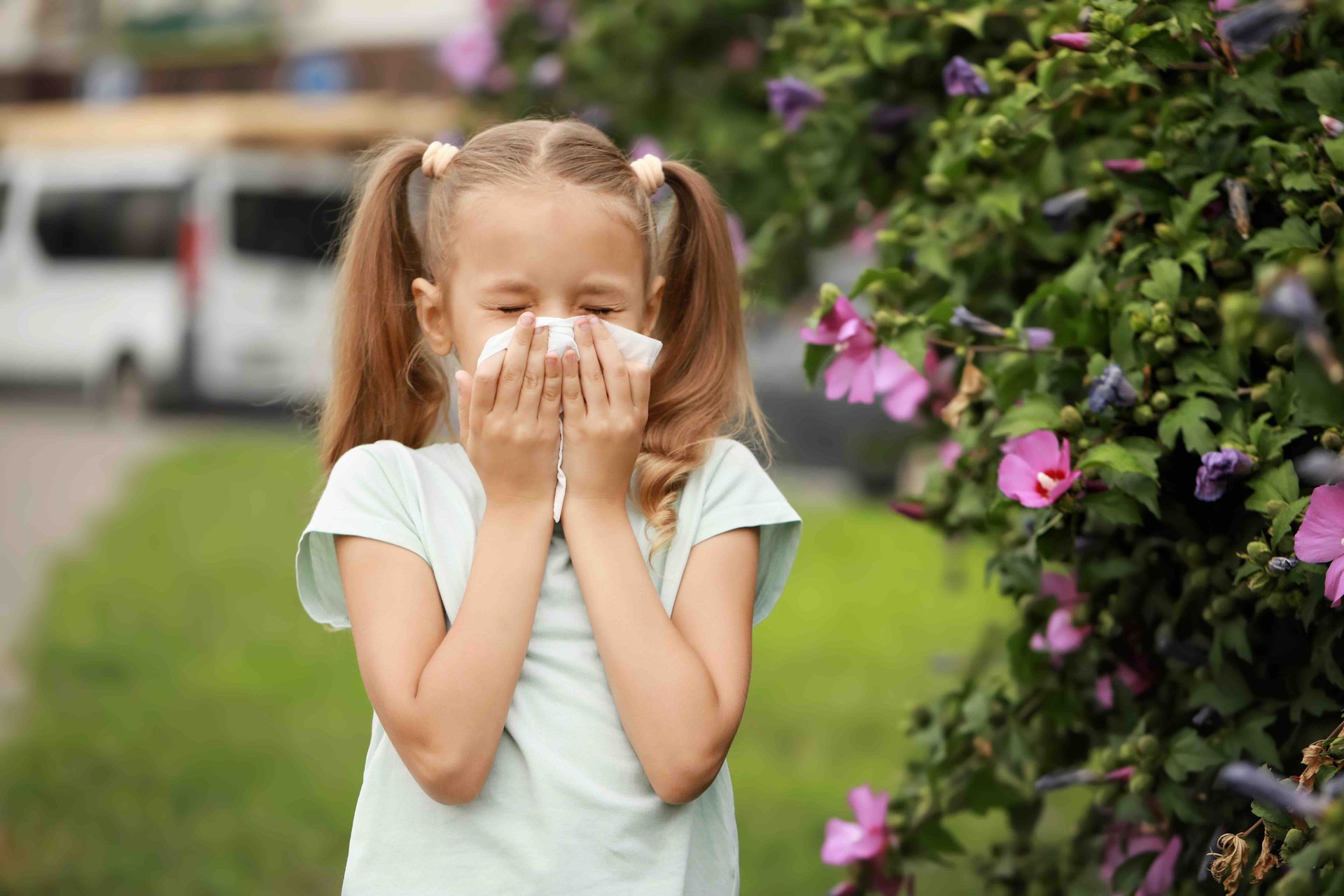Improving Your Sleep Hygiene for Better Rest
Sleep is essential for maintaining physical and mental health. It influences mood, cognition, and overall well-being, and its quality directly impacts daily performance. However, many people struggle with getting a good night's sleep, often leading to fatigue, irritability, and difficulty concentrating. One way to improve sleep quality is by practicing good sleep hygiene.
Sleep hygiene refers to habits and practices promoting regular, uninterrupted, and restful sleep. While many factors can influence sleep quality, including environmental conditions, stress levels, and medical issues, incorporating simple habits into one's daily routine can help optimize sleep hygiene. This article explores the significance of sleep hygiene and discusses several strategies to improve sleep quality through behavioral changes.

Do You Struggle with Sleep and Other Issues?
Find a primary care provider in Lake Odessa, MI at Family Medical Center if something is interfering with your normal sleep and recovery. We offer guidance and treatments for both men and women, as well as children and seniors. Request an appointment today.
Understanding the Importance of Sleep
Before delving into the specifics of sleep hygiene, it is essential to understand why sleep is so important. Sleep is a fundamental biological process that allows the body and mind to recover and repair. During sleep, the body undergoes physical restoration, and the brain processes information, consolidates memories, and restores cognitive function. Research shows that poor sleep is linked to a variety of adverse health outcomes, including a weakened immune system, increased stress levels, and a higher risk of chronic conditions such as heart disease, diabetes, and obesity (Walker, 2017). Additionally, sleep deprivation can impair judgment, decision-making, and emotional regulation, making it harder to cope with daily challenges.
Despite the critical role of sleep in overall health, a significant portion of the population experiences sleep disturbances.
According to the Centers for Disease Control and Prevention (CDC), about one-third of adults in the United States report insufficient sleep, defined as less than seven hours per night (CDC, 2020). Sleep disturbances can stem from a variety of sources, such as stress, anxiety, poor lifestyle choices, and environmental factors. While addressing the root causes of sleep problems can be complex, practicing good sleep hygiene offers a practical and accessible way to enhance sleep quality.
The Concept of Sleep Hygiene
Sleep hygiene encompasses a set of habits and practices that promote optimal sleep. It involves creating an environment conducive to rest and adopting behaviors that support the body's natural sleep-wake cycle. These habits can vary from person to person, depending on their lifestyle, preferences, and individual needs. However, certain practices are universally beneficial for improving sleep quality.
One of the key components of sleep hygiene is maintaining a consistent sleep schedule. The body's internal clock, or circadian rhythm, regulates the timing of sleep and wakefulness. When a person goes to bed and wakes up simultaneously every day, even on weekends, it helps synchronize the body's circadian rhythm and promotes better sleep quality. This consistency signals to the body when it is time to wind down and prepare for sleep, making it easier to fall asleep and wake up refreshed.
Another essential aspect of sleep hygiene is creating a sleep-friendly environment. The bedroom should be a sanctuary for rest, free from distractions and disruptions. The sleep environment should be dark, quiet, and calm, as these conditions are conducive to sleep.
Research has shown that light exposure, incredibly blue light emitted by electronic devices, can interfere with the production of melatonin, a hormone that regulates sleep (Harvard Health Publishing, 2020). Therefore, it is important to limit screen time before bed and consider using blackout curtains or eye masks to block out light. Additionally, noise can disrupt sleep, so earplugs or a white noise machine can help create a more peaceful environment.
Relaxation techniques can also play a significant role in sleep hygiene. Stress and anxiety are common contributors to sleep difficulties, and finding ways to calm the mind before bed can promote better rest.
Simple relaxation practices, such as deep breathing exercises, meditation, or progressive muscle relaxation, can help ease tension and prepare the body for sleep. Engaging in a relaxing pre-sleep routine, such as reading a book, taking a warm bath, or listening to calming music, can signal to the brain that it is time to wind down.
The Role of Diet and Exercise in Sleep Quality
In addition to behavioral practices and environmental factors, diet and physical activity also play a crucial role in sleep hygiene. Research has shown that certain foods and beverages can enhance or hinder sleep. For example, caffeine, a stimulant in coffee, tea, and some soft drinks, can interfere with sleep if consumed too close to bedtime.
Caffeine blocks the action of adenosine, a neurotransmitter that promotes sleep, and can delay sleep onset or reduce sleep quality (Roehrs & Roth, 2008). Therefore, avoiding caffeine in the late afternoon or evening is recommended.
Similarly, alcohol, while often thought of as a sleep aid, can disrupt sleep. Although alcohol may initially induce feelings of drowsiness, it can interfere with the later stages of sleep, particularly REM (rapid eye movement) sleep, which is crucial for cognitive restoration and memory consolidation.
Consequently, it is best to limit alcohol consumption, especially in the hours leading up to bedtime.
On the other hand, certain foods can promote relaxation and improve sleep quality. Foods rich in tryptophan, such as turkey, nuts, and seeds, can help increase serotonin and melatonin levels in the brain, which are involved in regulating sleep. Additionally, magnesium-rich foods, such as leafy greens, bananas, and whole grains, may support better sleep by helping to relax the muscles and nerves. It is also advisable to avoid heavy or spicy meals close to bedtime, as these can cause discomfort and interfere with sleep.
Exercise is another important factor in sleep hygiene. Physical activity can improve sleep quality by promoting more profound and restful sleep. Exercise helps regulate the circadian rhythm and can reduce the time it takes to fall asleep. However, it is essential to time exercise appropriately. While exercise earlier in the day can promote better sleep, vigorous activity too close to bedtime may have the opposite effect, as it can increase adrenaline levels and make it harder to unwind. It is recommended to aim for at least 30 minutes of moderate exercise on most days but to avoid intense workouts in the hours leading up to sleep.
The Impact of Technology on Sleep Hygiene
While technology can be a helpful tool for staying connected and entertained, it can also harm sleep quality. One of the most common ways technology interferes with sleep is through electronic devices, such as smartphones, tablets, and computers, emitting blue light.
Blue light suppresses the production of melatonin, the hormone responsible for regulating sleep (Harvard Health Publishing, 2020). As a result, using electronic devices before bedtime can make it more difficult to fall asleep.
To mitigate the negative impact of technology on sleep, it is recommended to establish a "tech-free" period before bed. This could involve turning off electronic devices at least 30 to 60 minutes before bedtime.
Additionally, many devices now offer "night mode" settings that reduce the amount of blue light emitted, which may be helpful for those who need to use their devices in the evening. If possible, creating a designated sleep space free from screens and other distractions is also beneficial, ensuring that the bedroom remains a calm and restful environment.
Try Novel Ways to Fall Asleep
Novel ways to fall asleep can involve various techniques beyond traditional methods. One approach is mindfulness meditation, which focuses on breathing and body awareness to quiet the mind.
As mentioned previously, you can also try progressive muscle relaxation, where you tense and then release each muscle group to release tension. Sound therapy, such as listening to white noise or calming nature sounds, can also help.
Experimenting with a cool room temperature or using weighted blankets can provide comfort, aiding the transition to restful sleep. Creativity and personalization are key!

Key Takeaways
Improving sleep hygiene is an effective and accessible way to enhance sleep quality and overall well-being. By implementing simple habits, such as maintaining a consistent sleep schedule, creating a sleep-friendly environment, practicing relaxation techniques, and being mindful of diet and exercise, individuals can experience better rest and improved health.
The growing body of research on sleep emphasizes the importance of good sleep hygiene and highlights the significant impact that sleep has on physical and mental health. As such, prioritizing sleep and adopting these simple strategies can improve sleep quality and a more balanced, energized life.
References
- Centers for Disease Control and Prevention (CDC). (2020). Sleep and sleep disorders.
https://www.cdc.gov/sleep/about/index.html
- Ebrahim, I. O., Shapiro, C. M., Williams, A. J., & Fenwick, P. (2013). Alcohol and sleep I: Effects on normal sleep. Alcoholism: Clinical and Experimental Research, 37(4), 539-545.
https://pubmed.ncbi.nlm.nih.gov/23347102/
- Harvard Health Publishing. (2020). Blue light has a dark side. https://www.health.harvard.edu/staying-healthy/blue-light-has-a-dark-side
- Roehrs, T., & Roth, T. (2008). Caffeine and sleep. Sleep Medicine Reviews, 12(2), 153-162. https://pubmed.ncbi.nlm.nih.gov/17950009/
- Walker, M. (2017). Why we sleep: Unlocking the power of sleep and dreams. Scribner. https://pmc.ncbi.nlm.nih.gov/articles/PMC5863668/

Your Family’s Health Is Our Priority
Your wellness matters to us. Take the next step in your care today.
1020 4th Ave
Lake Odessa, MI 48849
oFFICE HOURS
- Mon - Tue
- -
- Wed - Thu
- -
- Fri - Sun
- Closed
AFTER HOURS EMERGENCY CONTACT
1020 4th Ave
Lake Odessa, MI 48849
oFFICE HOURS
- Mon - Tue
- -
- Wed - Thu
- -
- Fri - Sun
- Closed
AFTER HOURS EMERGENCY CONTACT
All Rights Reserved
FAMILY MEDICAL CENTER
website designed by SPECK DESIGNS
All Rights Reserved | FAMILY MEDICAL CENTER
website designed by SPECK DESIGNS




